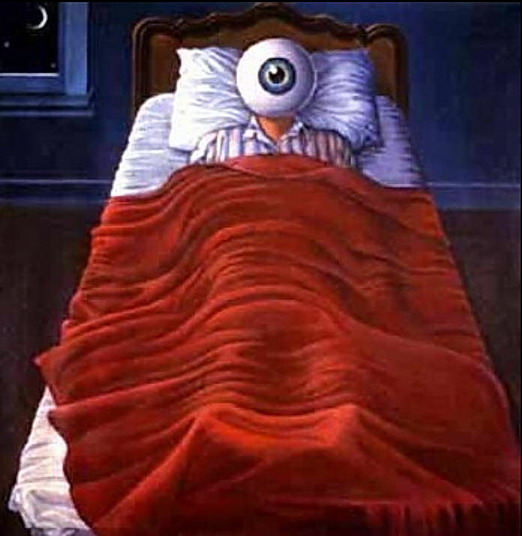Blue Max
The King of Retro®
- Joined
- 13 Οκτ 2020
- Μηνύματα
- 5.155
- Αντιδράσεις
- 16.932
Follow along with the video below to see how to install our site as a web app on your home screen.
Σημείωση: This feature may not be available in some browsers.
πάμπερς και μπέιμπυ λίνο...Μετά το 2:20 που γίνεται λίγο πιο έντονη η μουσική στο soundtrack.. μου πήγε το σk@το στη κάλτσα... μου θύμισε το έργο και το Άλιεν και κοίταζα πίσω μου μήπως με χάιδεψει το γλυκούλη.. μπρρ..



 Καλά κάνω και δεν βλέπω "φοβιστικές" (έτσι τις έλεγα μικρός) ταινίες...
Καλά κάνω και δεν βλέπω "φοβιστικές" (έτσι τις έλεγα μικρός) ταινίες...Πιστεύω πως ολόκληρο το άλμπουμ Γκάλοπ (1985) θα σου φανεί αλλόκοτο και πολύ ενδιαφέρον.Δε γνώριζα το κομμάτι απο τη Λένα Πλατωνος. Βλέπω τις ομοιότητες.
Πολύ ωραίο και αυτο. Το κρατάω. Θενκς Blue Max!
Θα το τσεκάρω φιλε Blue Max και θα επανέλθω. Ευχαριστω !Πιστεύω πως ολόκληρο το άλμπουμ Γκάλοπ (1985) θα σου φανεί αλλόκοτο και πολύ ενδιαφέρον.
Καλημέρα.
Βίκυ Μοσχολιού - Ο ναύτης το ναυτόπουλο (1978)
Διαχρονικό άσμα του 1975!!!Θα το τσεκάρω φιλε Blue Max και θα επανέλθω. Ευχαριστω !
Απο εμενα, μέρα που ειναι, ένα τραγούδι απο «τα αγροτικά» του Βασίλη Παπακωνσταντινου
1981...The Human League - Don't You Want Me (Official Music Video)
Αμέτρητες φορές το έχω ακούσει, δεν ήξερα πως λέγεται !Dana Dawson - Romantic World


Γνωστή περίπτωση αλλά δεν μας πειράζει. Αγαπάμε iconic Den Harrow, όπως αγαπάμε Milli Vanilli, Bobby Farell και τόσους άλλους.Den Harrow (Stefano Zandri) -- MAD DESIRE (Official Video Clip) 1986
After years of fame and popularity, it was revealed by frontman Stefano Zandri and his producers that Zandri did not actually sing any of the songs credited to Den Harrow; he was essentially a character who lip-synched to vocals recorded by a number of other singers. Furthermore, since they did not consider Zandri's name and origin to be "trendy" enough, producers Turatti and Chieregato concealed Zandri's Italian origin, marketing him as having been born Manuel Stefano Curry in Boston, Massachusetts. This was done so that Polydor Records could market him more easily in the English-speaking world, where Italian-produced music was, at the time, viewed with skepticism.[5]
American vocalist Tom Hooker, also known as Thomas Barbey, who was residing in Italy during the Italo disco era, sang most of the songs for the Den Harrow project,[3] including the 1985–1986 European hit singles "Don't Break My Heart", "Bad Boy", "Catch the Fox", and "Future Brain". Another vocalist, Anthony James from England, was contracted to sing the lead vocals on the Lies album (1988), and also provided the lead vocals on songs like "Holiday Night", "My Time", "You Have a Way". During an interview, Tom Hooker explains why it was decided to be done this way:
There was a small problem, however. He couldn't sing. So the solution was to never let him sing, or to put his voice so low in the mix that it was non-existent. He started as an image. He would work on his costumes and clothes and someone else would sing on the records. The truth is, vision is far more developed in humans than hearing. People tend to buy and listen to what they like to see.[6]
Also according to Tom Hooker, Chuck Rolando's voice was used in the early singles "To Meet Me" and "A Taste of Love". Later on, Silver Pozzoli was chosen to do the single "Mad Desire"; however, Hooker provided the vocals for the album releases of "Mad Desire". Although Hooker continued co-writing tracks for Den Harrow project, the producers wanted to use a higher-voiced vocalist for the 1988 album Lies. Hooker says that Zandri did sing on the 1991 Den Harrow single "Ocean".[6]
The 2018 documentary Dons of Disco addresses the controversy surrounding Den Harrow's identity and specifically Tom Hooker's involvement. Through archival footage and interviews with those involved in the "creation" of Den Harrow, both Zandri and Hooker's claims to Den Harrow's authorship are represented
Wikipedia
